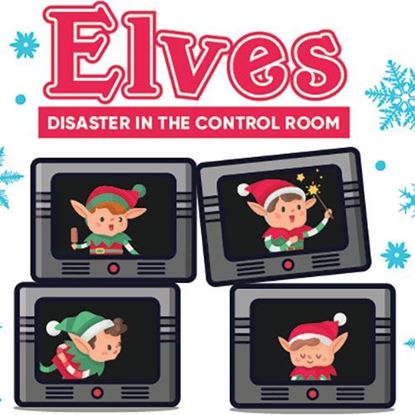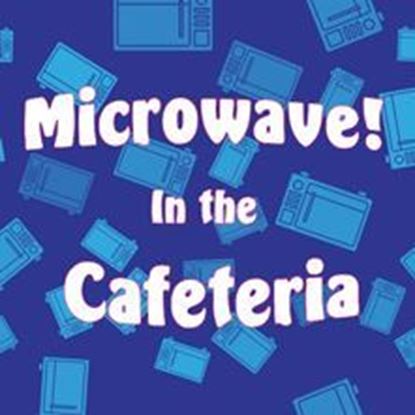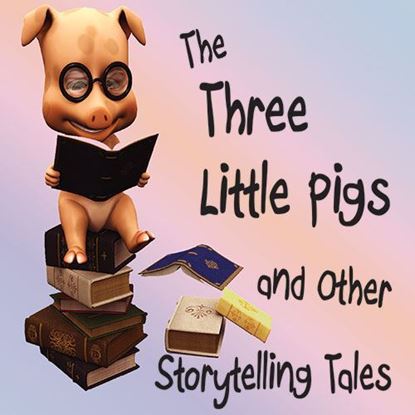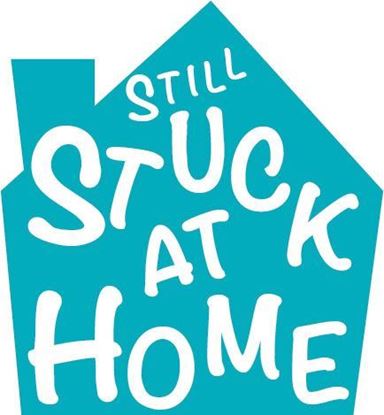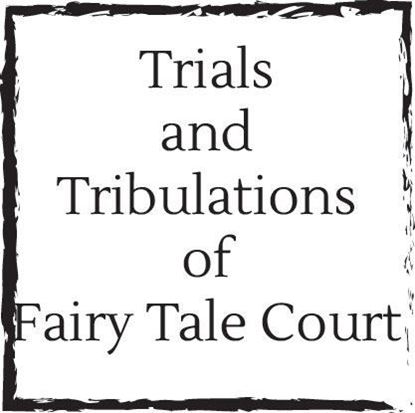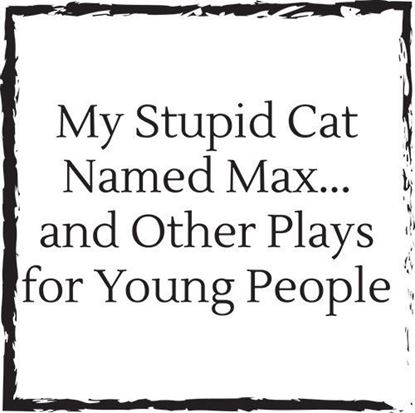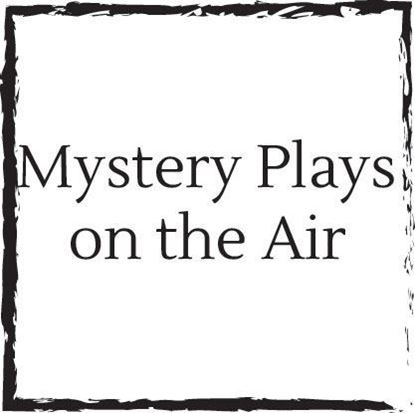Resources
Elves: Disaster in the Control Room
Christmas by Mollie Ottenhoff
17 pages
Flexible cast of 13
We are in the control room of Santa’s Elves on Christmas Eve—our view is exactly what Santa sees on his sleigh monitors. Santa is about to take off, and we are getting an inside look at how that happens from the control room monitors. Papa Elf is retiring next year after 108 years in charge. Spark is in the lead this year, and if all goes well, he/she will be the next Chief Elf. But a disaster awaits that just might cancel Christmas...
* To order: Under “BUY N...
Microwave! In the Cafeteria
Comedy by Bradley Walton
24 pages
18 roles any gender. Doubling possible.
It appeared without warning on a Monday, its origins shrouded in mystery. A week later, it had vanished without a trace. But across the days between, it changed cafeteria life in ways that no one could have imagined. It was a microwave oven, so ancient and decrepit that some believed it to have come from an Egyptian pyramid. Now, in a series of hilarious monologues suitable for stage or online presentation by a gender-flexible cast of 1 to 18 performers …its story will finally be told.
Electric Preacher
i-Monologue by Daniel S Kehde
9 pages
By Dan Kehde
A young man talks about his good friend Bucky who tried to become a "healer" as well as a preacher at tent revivals. After considerable practice, Bucky learns a trick involving a few wires to get a spark of reaction. Trouble is, one night Bucky steps into a puddle of water and gets a shocking reaction himself!
Three Little Pigs and Other Storytelling Tales
Storytelling by Evan Guilford-Blake
38 pages
2 to 12
There’s nothing like real, live storytellers to catch the imagination of youngsters. With these six tales, each told by a pair of storytellers, students can go on an enchanted voyage, whether they’re in a classroom, cafeteria or theatre. Let your young audiences, from kindergarten through 6th grade, connect, learn, and be entertained through these inventive scripts in one of the oldest forms of entertainment -- storytelling! Running from 6 to 12 minutes each, they include “The Cat, the Mouse and the Huge Pot of Cheese,” the Aesop tale of the two traditional e...
Still Stuck at Home
Comedy by Bryan Starchman
36 pages
Minimum 4 m, 2 w, 2 flexible, 1 offscreen voice. Maximum 9 m, 7 w, 2 flexible, 1 offscreen voice.
Join this hilarious family as they struggle to endure being stuck at home – together! How many family game nights can teens endure? How are the pets holding up? Can mom convince the kids to do their schoolwork or will they be doomed to a fifth year of high school? How do first dates and book clubs work while social distancing? And really, who is strong enough to endure more than one Dad joke?
This show is perfect at providing both laugh-out-loud humor as well as flexibility in stagin...
Trials and Tribulations of Fairy Tale Court
Skit by Christina Hamlett
My Stupid Cat Named Max...and Other Plays for Young People
Comedy by Nick Sweet
26 pages
Flexible cast
These four plays are ideal for young actors in school, for children's theatre groups, or even for summer camp talent shows. With plenty of rhyming and choral recitation, they can be presented easily with only a few rehearsals. Though each requires strong leading characters, any number of children can participate. Included with each piece are suggestions for simple staging, but feel free to use your own creative ideas. 30-40 minutes. Each play is 7-10 minutes long.
"Lost in the Forest...
No Taking It Back
i-Monologue by Dennis Bush
Side That Wins The War
i-Monologue by Daniel S Kehde
5 pages
By Dan Kehde
A Yankee soldier describes his dread before and during a fierce battle against waves of Reb soldiers. The sounds, the sights, and even the smell of battle assault him as he tries to survive while shooting from a small hole in a low rock wall. He wonders what is the difference between bravery and sheer stupidity.
Shakespeare Sells Out
i-Scene by Dwayne Lee Yancey
12 pages
By Dwayne Yancey
Shakespeare is a guest on a TV talk show to promote his updated classics: no more archaic references to fishmongers and codpieces. Instead, as various scenes are acted out, we see product placement now plays a huge part. There's a soft drink logo on Yorick's skull in "Hamlet"; the Weather Channel is plugged by the three witches in "Macbeth"; and a GPS device helps keep tab on Romeo. Where will it all end?!
Practice Escapes
i-Monologue by Dennis Bush
2 pages
By Dennis Bush
Vanessa, a teenage girl, recalls her father humming when he left the family on weekends; perhaps it didn't rate the full-out whistling he did when he finally walked out on the family forever. She cried when he left that time, but wonders if it wasn't from her sense of relief, knowing she wouldn't have to experience his disappointment in them anymore. (drama)
One-Word Hamlet, The
i-Scene by Dwayne Lee Yancey
Mystery Plays on the Air
Skit by Alice Duckworth
20 pages
Resource Book
Turn down the lights in your classroom and let your actors raise some goosebumps as they read and create the sound effects for these radio plays. "The Pool" (5 characters) is about a hidden pond with enticingly deadly waters "The Mask" (4 characters) is about a tribal mask which has powers to change looks and "The Message" (7 characters) is about a fax machine which sends warningsby itself.

